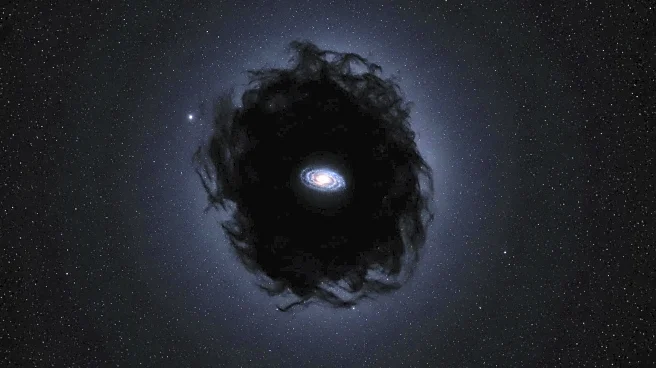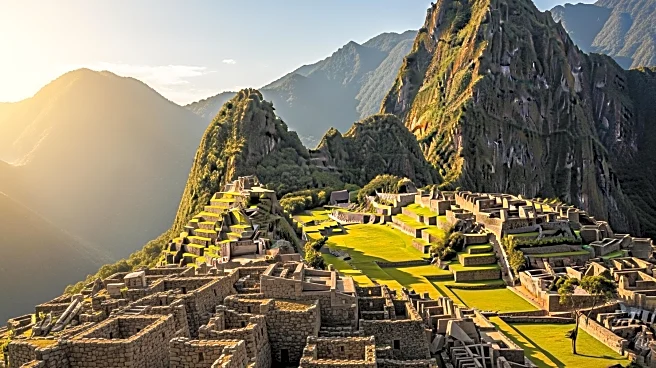What is the story about?
What's Happening?
A new study by Rajendra P. Gupta, an adjunct physics professor at Ottawa University, proposes that dark matter and dark energy may not exist. Instead, Gupta suggests that the universe's fundamental laws might be changing as it ages. This theory, known as CCC+TL, posits that the universe's forces diminish over time, creating effects that mimic dark matter and dark energy. Gupta's model uses standard matter and a variable constant to explain galactic motion, challenging the long-held belief that unseen forces govern the universe. The study has sparked debate in the scientific community, as it questions the foundations of modern cosmology.
Why It's Important?
If Gupta's theory is validated, it could revolutionize the fields of physics and astronomy. The existence of dark matter and dark energy has been a cornerstone of cosmological models, and their potential non-existence would require a reevaluation of our understanding of the universe. This could lead to new approaches in studying cosmic phenomena and shift the focus from searching for elusive particles to examining the changing constants of nature. The implications extend beyond academia, as they could alter public perceptions of the universe and its mysteries. The study challenges scientists to rethink established theories and explore new possibilities.
What's Next?
Further testing and validation of Gupta's model are necessary to determine its viability. The theory must be tested against gravitational lensing, a phenomenon well-explained by dark matter. If successful, it could reshape scientific research priorities and lead to new discoveries about the universe's structure and evolution. The study encourages scientists to make more precise measurements of cosmic constants over time and distance, potentially accelerating breakthroughs in understanding galaxy formation and the universe's expansion. The scientific community will closely monitor developments in this area, as they could have profound implications for our understanding of the cosmos.
















